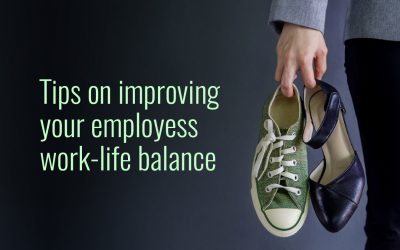
In the first part of the “Working Together, Remotely” series, we shared stories of Scorers who have had to face quite a few changes while working from home. Today, we will take a closer look at how our People Operations Manager, Annika, and Customer Onboarding Expert, Austin, have adapted and what has changed for them.
The current situation continues to change the business landscape as we know it. Whether you’ve been lucky enough to experience only moderate impact or one of those profoundly affected by the lockdown, it has undoubtedly forced us all to adjust and come out of our comfort zone.
And just like US Navy SEALS are taught on their first day of training to get comfortable being uncomfortable, companies have learned to make it work in these difficult times. By now, many businesses have actually managed to find their footing, and turned the situation around for them, resulting in many amazing innovations and initiatives.
Amazon, for example, has launched an initiative to accelerate COVID-19 research and put in place an extensive financial plan to support their workers during these difficult times. Both Amazon and PepsiCo have also created thousands of new jobs to help out the communities during these difficult times.
In the end, it’s these united efforts and shared stories that make it easier for all of us to withstand the crisis. Even when everyone’s experiences are very individual, and can vary depending on the location, industry, and other business-specific factors. They can also vary for different positions.
People whose roles don’t require interaction with others have been able to adjust quicker. But those whose role is dependent on interacting with other people – for instance, managing teams or supporting customers – have had to find a way to maintain relationships.
Now, more than ever, it’s been crucial for them to be empathetic and conscious of everyone’s situation. Processes put in place under normal circumstances might not hold during the crisis, and every case has to be treated differently. For example, it’s necessary to temporarily shift focus from attracting new customers to retaining existing ones. Because it’s imperative to be in contact with your customers and help them through the crisis by implementing different support packages.
Success Stories
We have many people working every day to make sure our team and clients are happy. Our People Operations Manager, Annika, and Customer Onboarding Expert, Austin, both have the important task of ensuring that our team and clients are still getting the best experience, regardless of the challenging times we’re all facing.
How has the current situation affected your job in particular? Are you doing something differently?
Austin: As the majority of my work happens online, the way I do my job hasn’t changed too much, it’s where I do my job that has changed. That said, Customer Onboarding is a client-facing role, which means progress can heavily depend on the client’s schedule. With the current pandemic and economic situation, I do have clients that have postponed onboarding to focus on their own business. But this gives me more time to work with active clients. I’m more available for impromptu Zoom calls or my internal side projects, which I didn’t have as much time for previously.
Annika: In essence, my job has remained the same. But the biggest difference compared to working in the office is the lack of direct and spontaneous communication, which plays a huge part of my role. Luckily, we have so many modern online communication tools that can make you feel like you’re all together in one room.
How do you feel about working remotely? What have been the biggest challenges?
Annika: The biggest challenge has been to transform my home into office space, school, kindergarten, all at once, without losing the right balance. This experience has made me confident that it can be done successfully, but only when you’re not putting too much pressure on yourself. It’s not a competition or test of your competence – nothing happens if you don’t make a fresh-made meal three times a day or when your child is on the video call with you.
“I’ve had to adapt my work habits, put on the blinders not to get distracted by my stuff at home or my dog who begs for belly rubs. Luckily I have a home office with a proper desk, chair, and monitor, so this does help set the mood.” – Austin
Austin: I’ve always been a work-at-office kind of person. The environment of being in the office, together with others who are working, gave me the boost to get my work done. Besides, my team is very open to helping, so in the office, I had that ability to immediately see who was free to answer my question. Although we’re using Slack for this now, there’s that human element that was underappreciated a few months ago.


